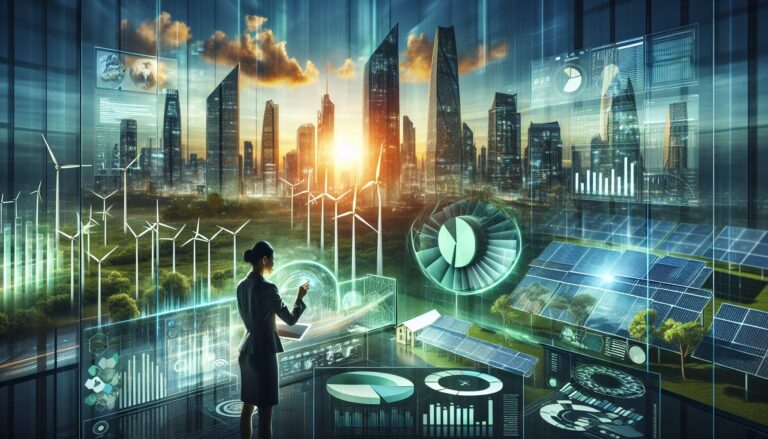In today’s rapidly changing world, businesses must navigate a complex landscape that is increasingly shaped by environmental concerns. From climate change to resource depletion, the implications of current environmental trends are profound and far-reaching for both companies and society as a whole. In this blog post, we will delve into the interconnected web of environmental events and trends, and explore their broader implications on the business realm.
The state of our environment is reaching a critical tipping point. Rising global temperatures, shrinking ice caps, and severe weather events are just a few symptoms of a planet in crisis. Experts suggest that these changes are largely driven by human activities, placing a responsibility on businesses to reassess their practices and embrace more sustainable alternatives.
One significant trend gaining momentum is the transition to renewable energy sources. As governments and consumers demand cleaner energy production, businesses that fail to adapt risk falling behind. Embracing renewable energy not only reduces carbon emissions but also offers long-term cost savings and enhances brand reputation. Companies that proactively invest in solar, wind, or geothermal energy projects demonstrate their commitment to mitigating climate change and securing a sustainable future.
Another crucial environmental trend with significant business implications is the shift towards circular economy practices. Traditional linear business models, which focus on extraction, production, and disposal, are increasingly seen as unsustainable. A circular economy aims to keep products and materials in use for as long as possible through recycling, reusing, and refurbishing. Embracing this model not only reduces waste but also creates new business opportunities and fosters innovation. Companies that adopt circularity principles can reduce costs, attract environmentally conscious customers, and enhance their competitive advantage.
Alongside these shifts, there is growing pressure on businesses to enhance their environmental transparency and accountability. Stakeholders, from investors to consumers, are demanding greater disclosure and a measurable commitment to sustainability. Companies that embrace transparency and set clear environmental goals not only build trust but also unlock potential partnerships and access to capital. Businesses that fail to demonstrate their commitment to sustainable practices risk reputational damage and loss of market share.
Looking forward, the implications of these environmental trends in the business realm are vast. Companies that proactively address sustainability issues have an opportunity to tap into new markets, drive innovation, and secure long-term success. Conversely, those that ignore these trends put themselves at risk of regulatory penalties, supply chain disruptions, and reputational crises.
To navigate the future successfully, businesses must develop comprehensive sustainability strategies that prioritize environmental stewardship, promote innovation, and engage stakeholders at all levels. Embracing renewable energy, transitioning towards a circular economy, and enhancing environmental transparency are critical steps towards a more sustainable future.
In conclusion, the implications of current environmental trends are profound for businesses. From renewable energy adoption to circular economy practices and enhanced transparency, companies that embrace these trends are well-positioned to thrive in a rapidly changing world. By being conscious of our planet’s limits, businesses have the power to shape a sustainable future, benefitting not only their bottom line but also the well-being of all.

